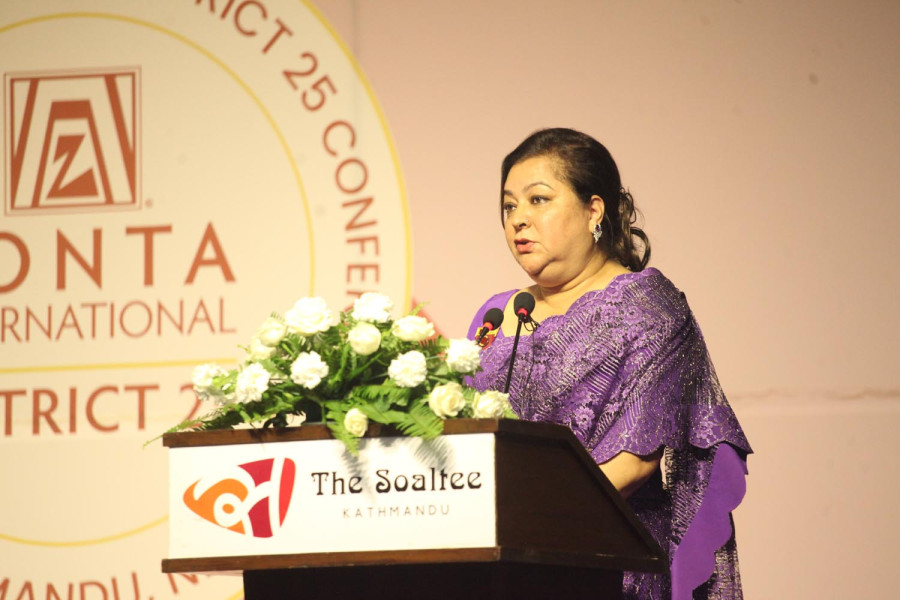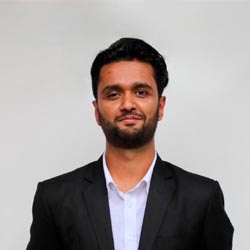Culture & Lifestyle
Embracing diversity, equity, and inclusion
The ongoing 17th Zonta International District 25 conference focuses on women’s issues as well as climate justice.
Anish Ghimire
The 17th annual Zonta International District 25 conference started in Kathmandu on October 6. The three-day event is on the theme ‘Embracing Diversity, Equity, and Inclusion’ and will address various women’s issues and climate justice.
Zonta District 25 is an integral part of the larger Zonta International family, encompassing member countries India, Bangladesh, Nepal, and Sri Lanka. Delegates from these four nations have converged in Kathmandu to engage in meaningful dialogue, furthering the cause of women’s empowerment and climate justice. The event is jointly hosted by Zonta Club Kathmandu and Zonta Club Pokhara.
Zonta International is a service organisation working to empower women through service and advocacy. It is a non-governmental and non-political organisation headquartered in Chicago, US. Zonta’s 100-year history speaks of its commitment at international, district and club levels to improve the legal, political, economic, educational, health, social and professional status of women.
Chief guest Surendra Raj Acharya, minister for Women, Children, and Senior Citizens, and special guest Sunita Dangol, deputy mayor of Kathmandu Metropolitan City, attended the conference’s inaugural ceremony on October 6, which was held at the Soaltee Hotel in Kathmandu.
The inaugural event commenced with an enchanting performance by the dancers from Sushila Arts Academy that set a tone of celebration and unity. It was followed by the national anthems of the respective member countries.
Shreejana Rana, the governor of Zonta International District 25, greeted the audience with her opening remarks. She shed light on the etymology of the word ‘Zonta’, tracing its roots to Lakhota (Teton Dakota), a language of the Native American Sioux peoples, where it signifies ‘honesty and trustworthiness’. Rana’s words carried the spirit of Zonta—a commitment to stand against various forms of injustice faced by women and a call to raise awareness about the pressing issue of climate change.
The conference’s agenda includes two critical workshops. The first delves into the themes of diversity, equity, and inclusion, addressing the need to create a world where everyone has equal opportunities. The second workshop focuses on gender-equal climate action, underlining the urgency of addressing environmental challenges.
Rana emphasised the conference’s commitment to sustainability, stating, “During this conference, our meetings may not be green. But there will be no plastic bottles, no use of pen—we’ll only use pencil—our newsletter is an electronic one, and you will find significant use of jute products.”
The keynote speaker, Bharati Silwal Giri, a former assistant resident representative of UNDP Nepal and chair of Pradeep Giri Memorial Trust, addressed the audience with thought-provoking insights. She said, “East Asia has 68.8 percent gender parity, which means it will take hundreds of years for us to achieve full gender parity.”
Gender parity refers to the equal contribution of women and men to every dimension of life, whether private or public. It is calculated by weighing the participation of men and women in different categories, such as education, employment, health, politics, and economic participation. According to the World Bank, Nepal has a gender parity of 69.2 percent.
Giri also gave some examples of countries doing well to close the gap between men and women. She applauded New Zealand for its remarkable gender equality rate of 85.6 percent. She also mentioned that Iceland has taken the top position in the World Economic Forum rankings, with an estimated gender gap closure rate of 91.2 percent, the only country to have achieved over 90 percent closure of the gender gap.
“Though Iran, Pakistan, and India lag behind on the list, they are making slow but steady progress,” added Giri, underscoring the importance of incremental change.
Dangol, on the other hand, emphasised the vital role of women in politics and other influential fields. Despite notable progress—like women holding the positions of president and speaker of the parliament in Nepal, the influence of women in decision-making and constitution-building processes remains limited.
She spoke against the stereotype that assumes women are incapable until they prove otherwise and urged women to support one another, stating, “An empowered woman will and should empower other women.”
Chief guest Acharya echoed the sentiments of empowerment. He mentioned how women’s empowerment is a powerful tool for nation-building, saying, “When women are empowered, it acts as a force not only for societal development but for the development of the entire nation.”
Furthermore, Acharya touched upon the theme of the conference, stating, “When we embrace diversity, equity, and inclusion, we give everyone an opportunity to express themselves and provide a hand in creating a better world.”




 9.89°C Kathmandu
9.89°C Kathmandu

.jpg&w=200&height=120)













